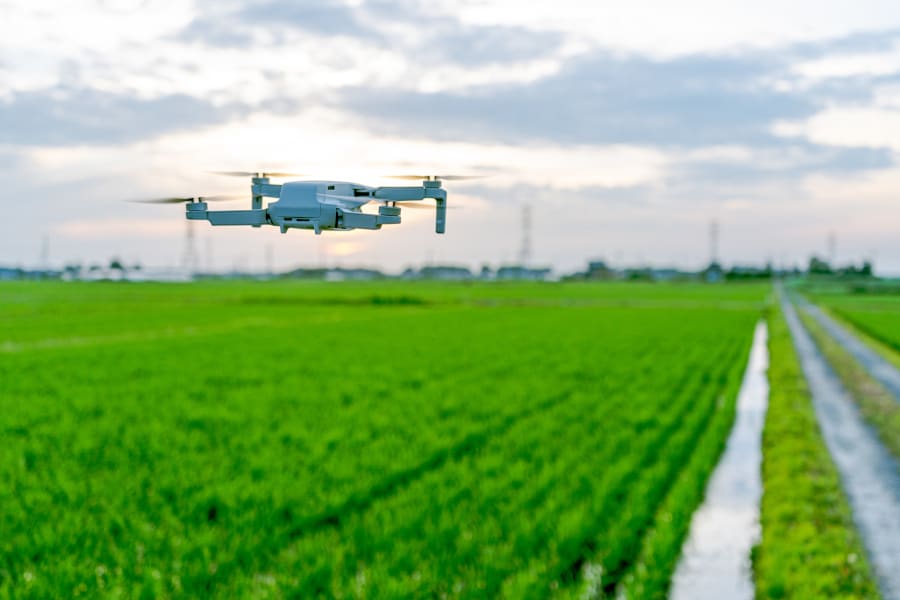Alumni panel to discuss agriculture, food systems and sustainability careers – Penn State University

Report on Sustain Penn State’s Webinar on Sustainable Food Systems and Career Pathways
Event Overview and Strategic Alignment with SDGs
On November 18, from 12:15 to 1:00 p.m., Sustain Penn State will host a virtual career webinar focused on sustainable food systems. This initiative is designed to connect current students with Penn State alumni who are actively contributing to the United Nations Sustainable Development Goals (SDGs) through their work in agriculture, supply chain management, food preparation, and nutrition. The event aims to provide students with crucial guidance on developing careers that address global sustainability challenges, thereby fostering a new generation of leaders committed to the 2030 Agenda for Sustainable Development.
Core Focus on Sustainable Development Goals
The webinar’s agenda is intrinsically linked to several key SDGs, emphasizing the interconnectedness of food systems with global well-being and environmental health. The discussion will center on career paths that directly contribute to:
- SDG 2: Zero Hunger: By exploring innovations in sustainable agriculture, food access programs like Double Up Food Bucks, and improved nutrition, the event directly addresses the goal of ending hunger and ensuring access to safe, nutritious food for all.
- SDG 12: Responsible Consumption and Production: The roles of speakers from corporate R&D and supply chain management highlight the critical need for sustainable production patterns and resource efficiency within the global food industry.
- SDG 8: Decent Work and Economic Growth: The webinar promotes career development in the green economy, showcasing viable and impactful employment opportunities within the sustainability sector.
- SDG 4: Quality Education: As an educational event, it provides students with specialized knowledge and career guidance, equipping them with the skills necessary to pursue careers that support sustainable development.
- SDG 17: Partnerships for the Goals: The event serves as a platform for partnership, connecting the academic institution with alumni in the private and non-profit sectors to mentor students and strengthen the network for achieving sustainability objectives.
Featured Speakers and Contributions to SDGs
The panel comprises four alumni whose professional roles exemplify action towards the SDGs:
- Rachel Vanlandingham, R&D External Strategy at PepsiCo: Her work informs corporate strategies for sustainable production and innovation, aligning with SDG 12.
- Eric Rosenbaum, Owner and Senior Agronomist at Rosetree Consulting LLC: His expertise in agronomy directly supports the promotion of sustainable agricultural practices, a cornerstone of SDG 2.
- Rachel Hoh, Director of Double Up Food Bucks Michigan at Fair Food Network: Her leadership in a program that increases food access for low-income communities is a direct contribution to achieving SDG 2.
- Jessica Chou, Programs Director at Greener Partners: Her role in managing community-based food programs advances both sustainable agriculture and food security, addressing targets within SDG 2 and SDG 12.
Program Objectives and Student Development
This webinar is the third in a fall series organized by Sustain Penn State to illuminate career paths in sustainability. According to Evelyn Wu, a sustainability career and alumni programming intern, the series serves as a vital “bridge between Penn State alumni and students to show them what a career in sustainability looks like.” The primary objectives are to:
- Provide all Penn State students with direct access to successful alumni in the sustainability field.
- Offer practical insights into the day-to-day work involved in sustainable food systems.
- Guide students on leveraging their university education for impactful career trajectories aligned with the SDGs.
Registration Information
The virtual event is free and open to all. Registration is required and can be completed via the provided registration link. For further inquiries, contact Julius Camper at jac8761@psu.edu.
Analysis of Sustainable Development Goals in the Article
1. Which SDGs are addressed or connected to the issues highlighted in the article?
-
SDG 2: Zero Hunger
- The article focuses on a webinar about food systems, including agriculture, food preparation, and nutrition. It mentions alumni working to “ensure everyone has a seat at the table” and highlights a program director from “Double Up Food Bucks,” which is a food access initiative. This directly connects to ending hunger and improving nutrition.
-
SDG 4: Quality Education
- The core subject of the article is an educational event—a “sustainability career webinar” series. Its purpose is to provide “guidance and expertise to current Penn State students,” help them “envision sustainability career paths,” and give them “direct access to successful alumni.” This aligns with providing quality education and promoting lifelong learning opportunities.
-
SDG 8: Decent Work and Economic Growth
- The webinar series is explicitly designed for “career exploration” and to help students “set them up for the best possible career trajectory.” By connecting students with professionals and showing them “what a career in sustainability looks like,” the initiative supports productive employment and decent work for youth.
-
SDG 12: Responsible Consumption and Production
- The event features professionals from various parts of the food system, including agriculture (agronomist), supply chain management, and R&D at a major food company (PepsiCo). The overarching theme of “sustainability” in food systems implies a focus on creating more sustainable production and consumption patterns, from farm to table.
2. What specific targets under those SDGs can be identified based on the article’s content?
-
Under SDG 2 (Zero Hunger):
- Target 2.1: End hunger and ensure access by all people to safe, nutritious and sufficient food. The mention of the “Double Up Food Bucks Michigan program” directly relates to this target, as such programs aim to increase access to nutritious food for low-income individuals.
- Target 2.4: Ensure sustainable food production systems and implement resilient agricultural practices. The involvement of an “owner and senior agronomist at Rosetree Consulting LLC” and the “programs director at Greener Partners” points toward efforts to improve agricultural practices and create sustainable food systems.
-
Under SDG 4 (Quality Education):
- Target 4.4: Substantially increase the number of youth and adults who have relevant skills for employment and decent jobs. The webinar’s goal is to help students “make the most of their time at Penn State to set them up for the best possible career trajectory,” which is a direct effort to equip them with skills and knowledge for employment.
- Target 4.7: Ensure that all learners acquire the knowledge and skills needed to promote sustainable development. The “sustainability career webinars” are a clear example of education for sustainable development, designed to help students “envision sustainability career paths.”
-
Under SDG 8 (Decent Work and Economic Growth):
- Target 8.6: Substantially reduce the proportion of youth not in employment, education or training. By providing career guidance and networking opportunities, the event aims to facilitate the transition from education to employment for students, thereby addressing this target.
-
Under SDG 12 (Responsible Consumption and Production):
- Target 12.8: Ensure that people everywhere have the relevant information and awareness for sustainable development. The webinar series itself is an initiative to raise awareness and provide information to students about sustainable careers and lifestyles.
3. Are there any indicators mentioned or implied in the article that can be used to measure progress towards the identified targets?
-
For SDG 2 (Zero Hunger):
- While no specific data is given, the existence of the “Double Up Food Bucks Michigan program” implies that progress could be measured by indicators such as the number of beneficiaries of food access programs or the increase in consumption of nutritious foods by participants.
-
For SDG 4 (Quality Education):
- The article implies indicators related to the event’s reach and impact. Progress could be measured by the number of students attending the sustainability career webinars. The statement that the webinars “have contributed to student success on all campuses” suggests an indicator like the percentage of attendees who report a better understanding of sustainability careers.
-
For SDG 8 (Decent Work and Economic Growth):
- An implied indicator is the successful transition of students into the workforce. Progress could be measured by the employment rate of university graduates in sustainability-related fields following their participation in such career development programs.
-
For SDG 12 (Responsible Consumption and Production):
- The article implies an educational indicator. Progress towards Target 12.8 could be measured by the number of educational and awareness-raising events on sustainable development organized by the university, such as this webinar series.
SDGs, Targets, and Indicators Table
| SDGs, Targets and Indicators | Targets | Indicators |
|---|---|---|
| SDG 2: Zero Hunger | 2.1: End hunger and ensure access to safe, nutritious and sufficient food.
2.4: Ensure sustainable food production systems. |
Number of beneficiaries in food access programs like “Double Up Food Bucks.” |
| SDG 4: Quality Education | 4.4: Increase the number of youth and adults with relevant skills for employment.
4.7: Ensure learners acquire knowledge and skills for sustainable development. |
Number of students attending sustainability career webinars. |
| SDG 8: Decent Work and Economic Growth | 8.6: Reduce the proportion of youth not in employment, education or training. | Employment rate of graduates in sustainability-related fields. |
| SDG 12: Responsible Consumption and Production | 12.8: Ensure people have relevant information and awareness for sustainable development. | Number of educational programs on sustainable development offered. |
Source: psu.edu
What is Your Reaction?
 Like
0
Like
0
 Dislike
0
Dislike
0
 Love
0
Love
0
 Funny
0
Funny
0
 Angry
0
Angry
0
 Sad
0
Sad
0
 Wow
0
Wow
0















































































